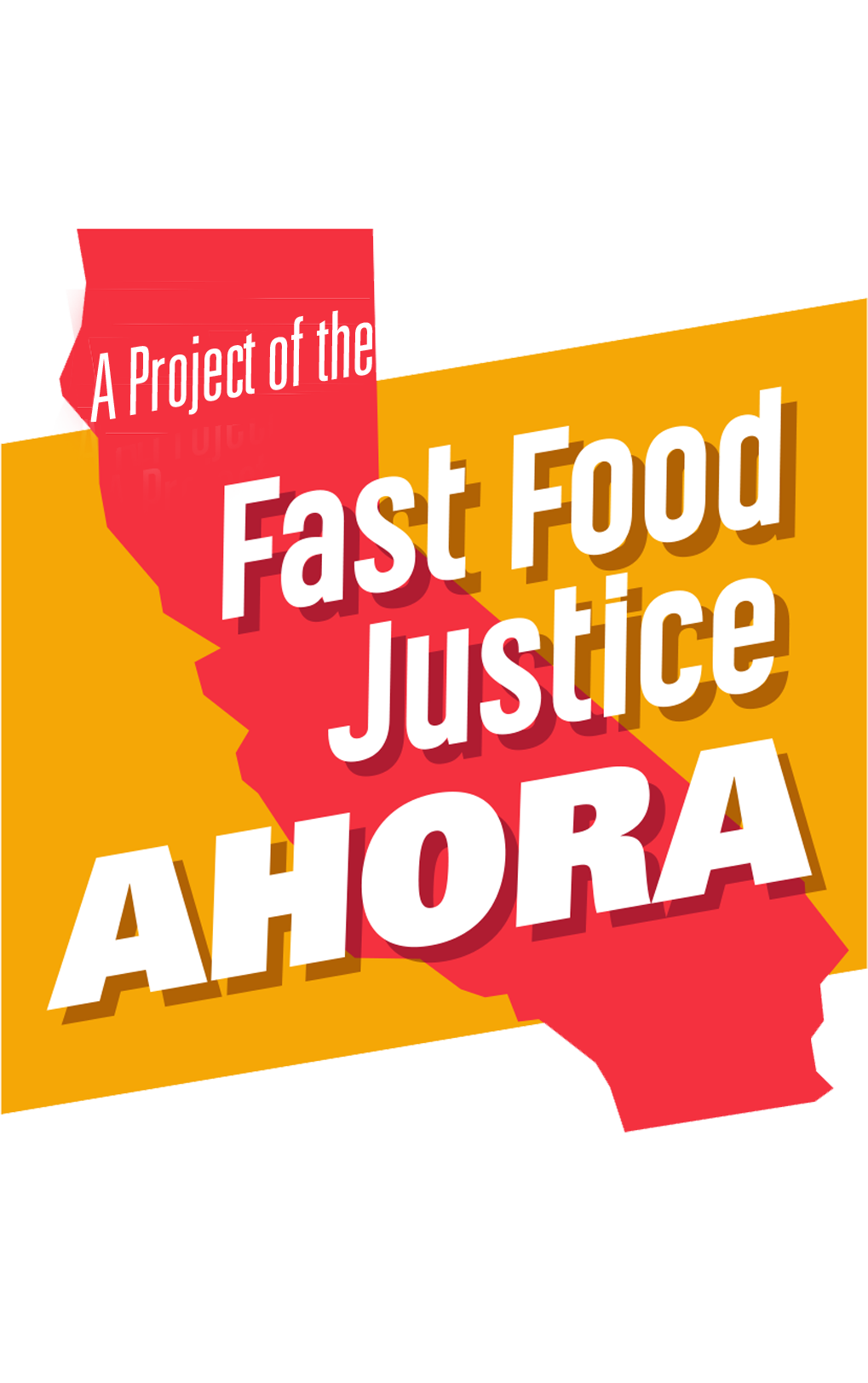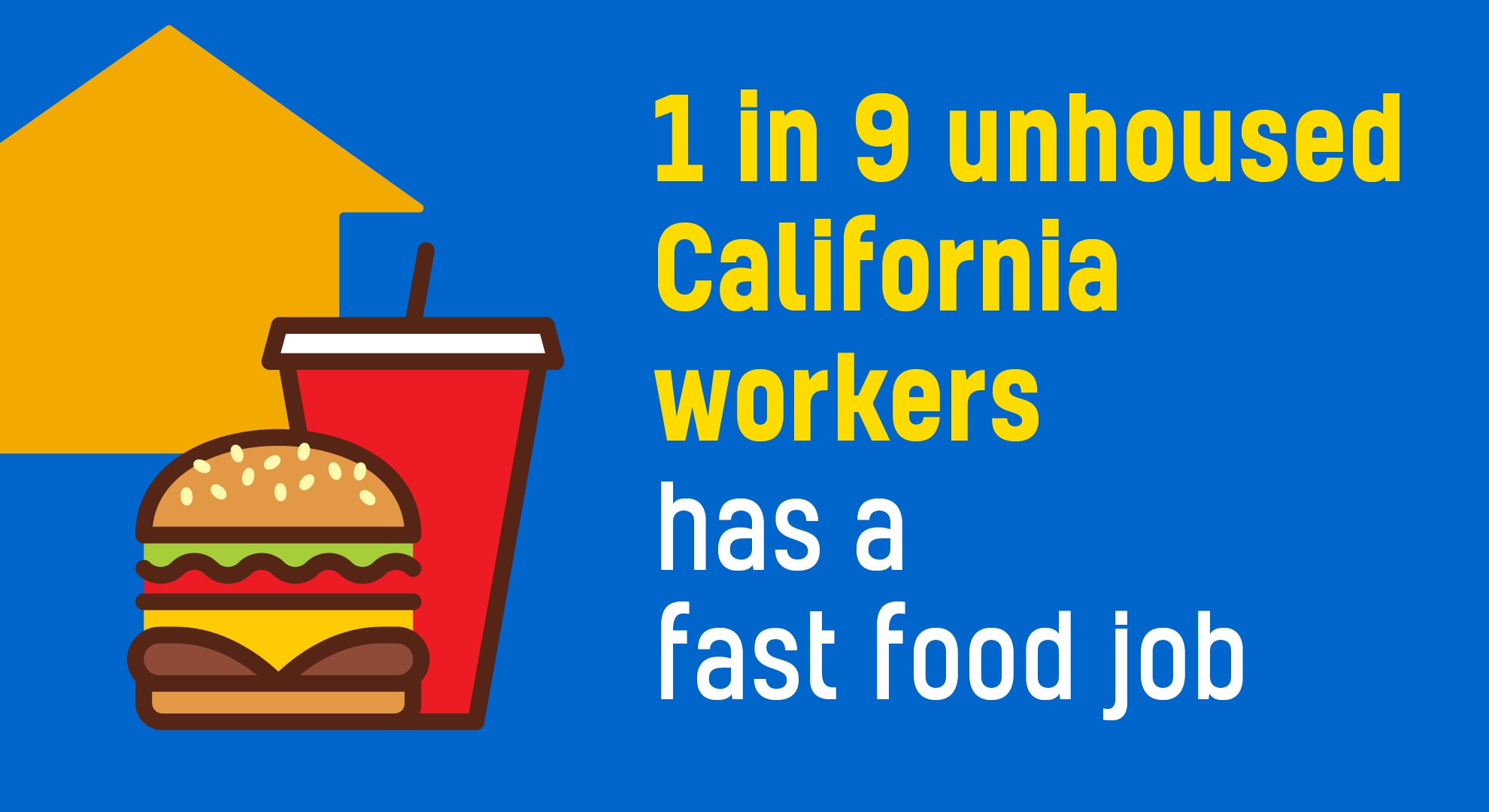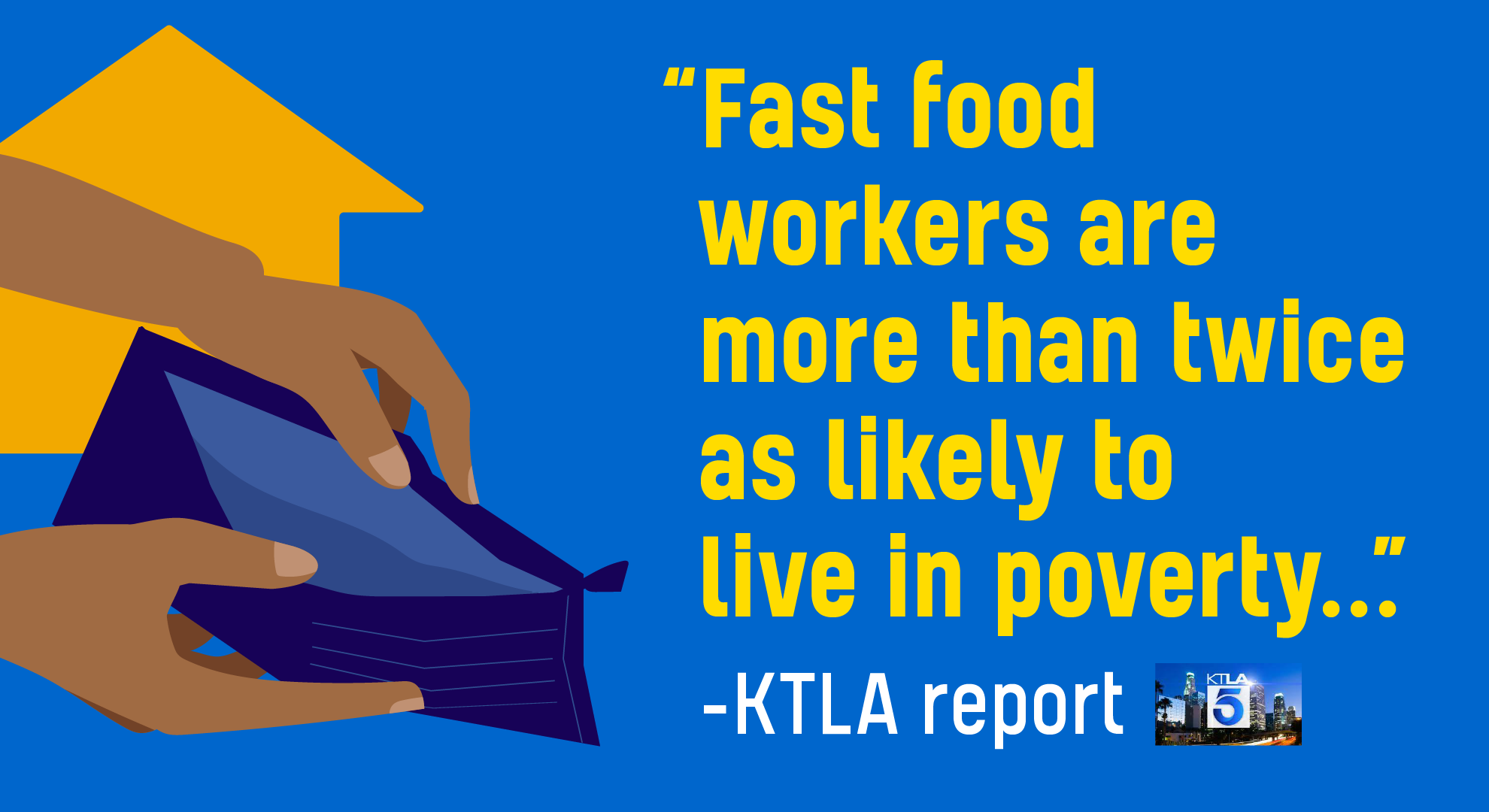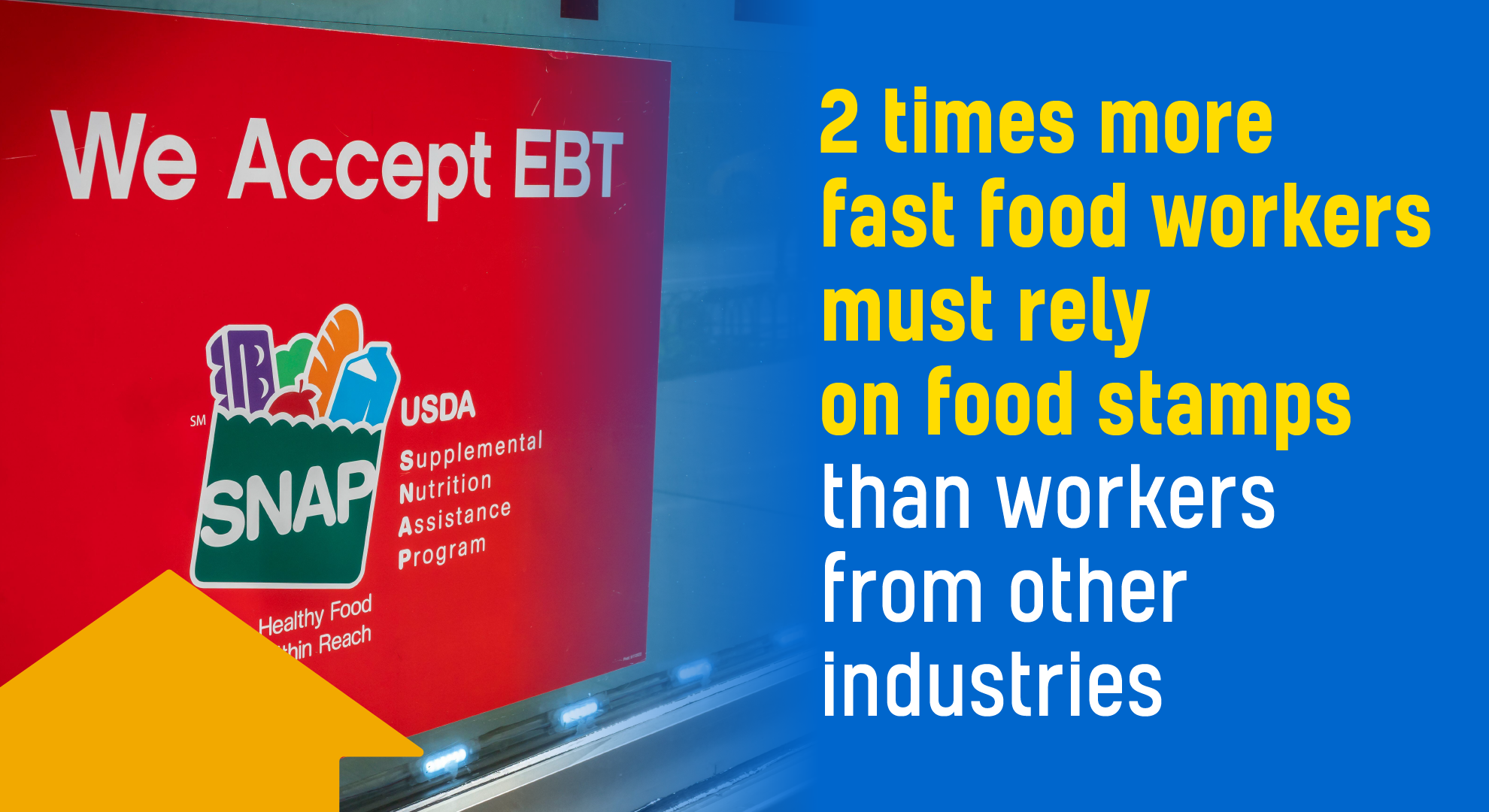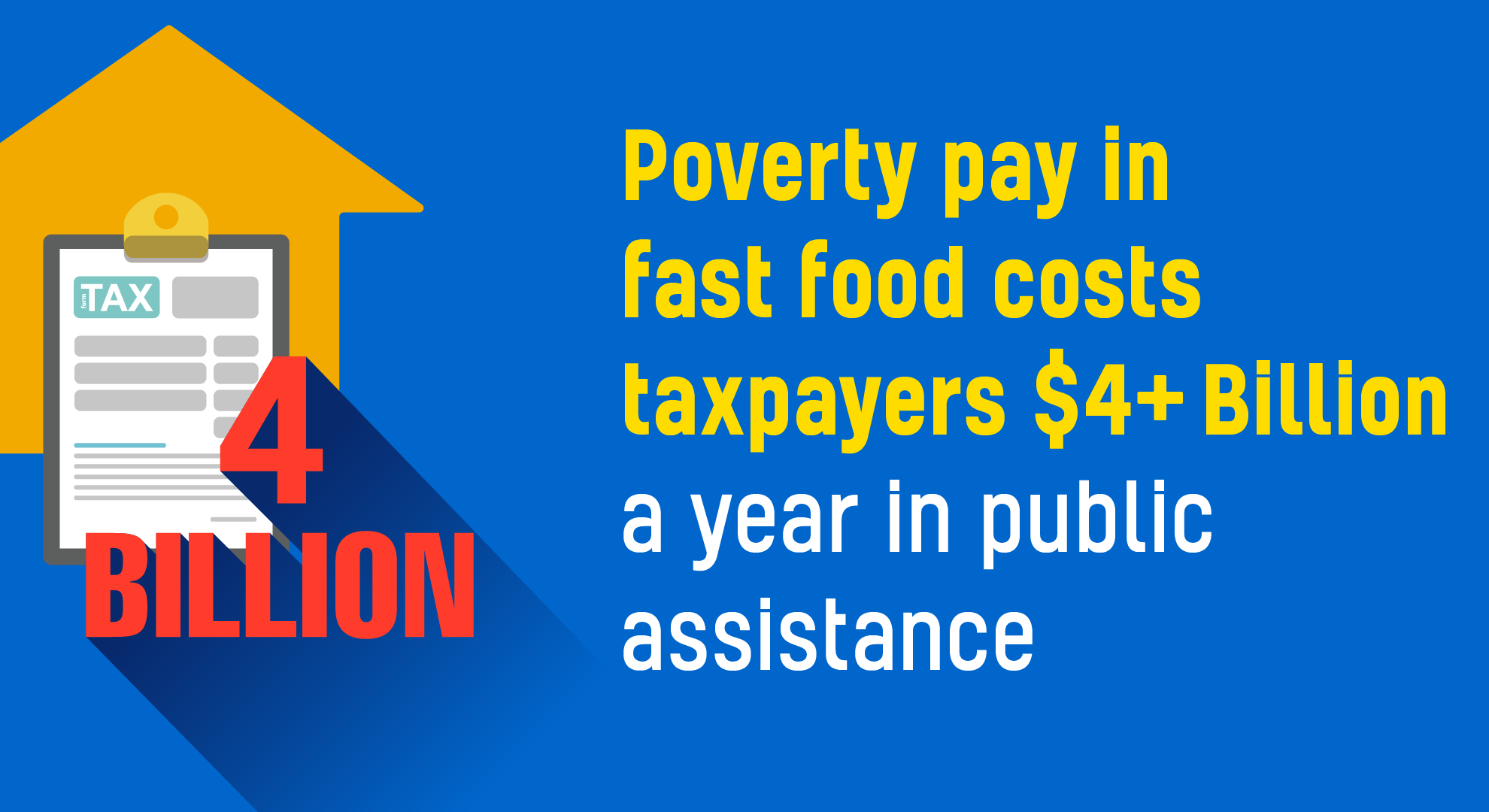CALIFORNIA FAST-FOOD WORKERS ARE RISING UP
California cooks, cashiers and baristas have been organizing, striking and fighting to better the fast-food industry for a decade. In 2016 fast-food workers made California the first state in the nation to adopt a $15/hour minimum wage. In 2023, they made history again when Governor Gavin Newsom signed AB 1228 into law.
This landmark law gives workers a seat at the table to develop better standards around wages, working hours and workplace conditions. And, it gives California’s 557,000 fast food a raise to at least $20/hour in April 2024.
There are a lot of myths about fast food work and what can be done to protect workers.
Our fight doesn’t end here. Every day, fast-food workers continue to face hazards at work. They need additional protections to keep them safe and ensure their jobs are sustainable.
The Fast Food Council guarantees California fast-food workers the ability to shape industry-wide workplace standards and gives them the power to hold corporations accountable for sticking to those standards.
Rats, Sewer Water, and other on-the-job hazards
The abuses that fast food workers face every day include wage theft, sexual harassment, injury, workplace violence, wages that are among the lowest of any occupation group in the state; and more recently, egregious COVID-19 health violations. Over 300 detailed health and safety complaints filed by California fast food workers over the last year demonstrate the human cost of this disempowerment.
Poor working conditions and pervasive compliance failures do not hit all California communities equally. Nearly 80 percent of California’s fast-food workers are people of color. The industry’s workforce is primarily made up of those Latino/Latina, API and Black communities hardest hit by the pandemic. The glaring inequality in California that existed before the pandemic has only been exacerbated this past year.
88% of California fast-food workers do not know their rights on the job.
That’s why fast-food workers are building on this statewide victory and tackling issues at the local level. Through local ordinances, workers in these major cities can further stabilize fast-food work by winning crucial protections needed to protect their rights at work, make fast food workplaces safer places for workers and customers alike, and make fast food restaurants fairer places to work.
City lawmakers are joining cooks, cashiers and baristas to make fast-food work, fair work for thousands of workers and their families.
In San Jose, dozens of workers are demanding that the San Jose City Council pass legislation to protect their rights, and they’re not alone. They are joined by a number of progressive organizations in their fight for Fast Food Justice:
SEIU 1021 ⋅ SEIU 2015 ⋅ SEIU USWW ⋅ SEIU 521 ⋅ Working Partnerships USA ⋅ UNITE HERE Local 19 ⋅ Silicon Valley Rising ⋅ IFPTE Local 21 ⋅ California Nurses Association ⋅ Latinos United for a New America (LUNA) ⋅ Asian Law Alliance ⋅ Showing Up For Racial Justice (SURJ) ⋅ South Bay Community Land Trust ⋅ Amigos de Guadalupe Center for Justice and Nonprofits ⋅ Santa Clara County Wage Theft Coalition ⋅ Step Forward Foundation
What does the Fast Food Council do?
Gives Workers a Seat at the Table
Create a statewide Fast-Food Council, which would include worker, government and industry representatives, to set minimum health, safety and employment standards across the California fast food industry
Good for Business,
Good for California
Ensure that franchisees can provide good jobs with benefits without being undercut by corporate franchisors
Back to the Future?
In 2015, the International Franchise Association (IFA) opposed a new law to put limits on unfair terminations of franchise agreements & protect local franchisees’ investments in their businesses. The IFA predicted dire consequences, saying the bill would make California “an unattractive place” for franchising.
But eight years after the law passed, none of the industry’s predictions have proven true.
Now, the IFA once again says the sky is falling – that corporate franchisors would not want to do business if they have to share in the costs of running safe and compliant restaurants. Echoing their 2015 talking points, they claim the FAST Recovery Act would mean “dismantling of the franchise business model in California.”
Meanwhile, on its website, the IFA calls California “a great place to start a franchise.” No wonder California franchise operators ask: Who is really fighting for us?
Contact us at SEIUCalifornia@thefightfor15.org
1. Makes it harder to squeeze California franchisees.
They may require franchisees to stay open during unprofitable overnights. They may prevent franchisees from raising prices. So, local franchisees often can’t make a profit without keeping wages low.
The FAST Recovery Act will set standards for all of fast food, reducing pressure to pay low wages. If corporate franchisors set terms that keep California franchisees from making enough money to meet the new standards – that will be against the law.
2. Makes corporate franchisors responsible for the problems they create.
They point to contract clauses that say: the local franchise operator is solely responsible, and the corporate franchisor can’t be sued.
Under the FAST Recovery Act, corporate franchisors will share liability for labor law violations. And, if a California franchisee ends up with any federal, state or local legal liability because of the terms of the franchise agreement, corporate franchisors have to help cover the cost.
3. Makes it harder for corporate franchisors to raise costs on California franchisees.
Expanded corporate profits and higher dividends shouldn’t be more important than the safety of a half million workers, their families and their communities across California.
4. Protects high-road employers.
5. A forum for honest dialogue.
Bringing together the voices and experiences of employers and employees can only make for a better industry.
The best California franchise operators have nothing to fear and much to gain from sitting at the table to discuss industry challenges with the workers they depend on every day to succeed.
Fast-Food Workers on Why They Support AB 257
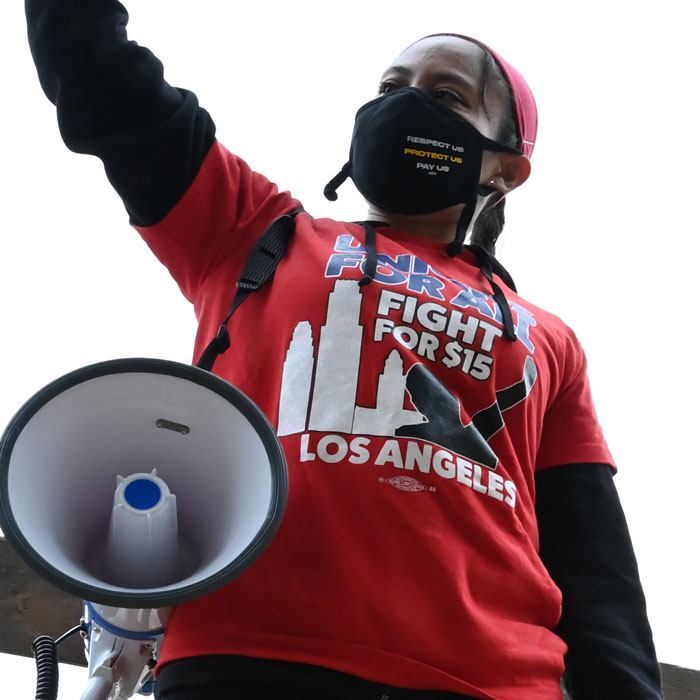
Lizzet Aguilar
Like other essential workers, my co-workers and I have risked our safety to serve our customers and the community. But, McDonald’s has done little to protect us. We need sweeping change across the industry and AB 257 is the first step to achieving that.
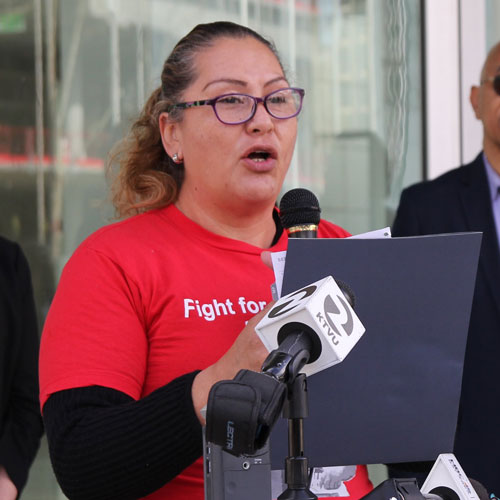
Maria Ruiz
Each time we clock in, we risk the possibility of not getting paid what we’re due, harassment from customers, abuse from managers and even retaliation when we speak up. We know what goes on behind our counters and drive thru windows, and we need to be at the table providing the solutions to the issues we face. California fast-food workers need AB 257

Bartolome Perez
We won a $15/hr wage here in California, but our fight isn’t over. Since day one of our movement, we’ve also demanded a voice on the job and accountability for corporations like McDonald’s that put profit over worker safety
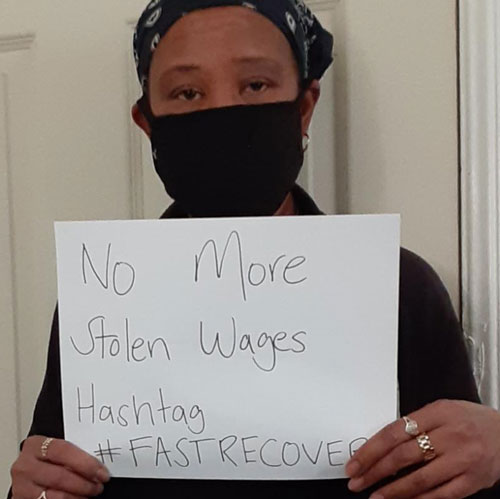
Ronnesha Pennywell
We need support, but corporations alone have proven that their only concern is profit. That is why we pass AB 257 and ensure our voices are taken into account.
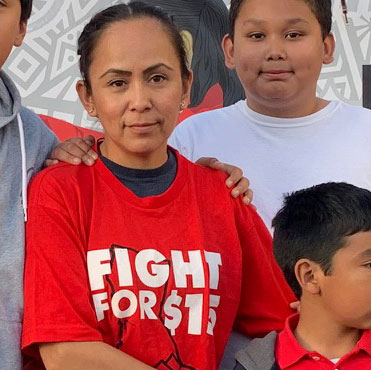
Noemi Flores
Having worked for at least a decade in McDonald’s I can say that there is a culture against workers exercising their rights at my store. With AB 257, workers could set new standards across the fast food industry to better protect us against this un-American hate.
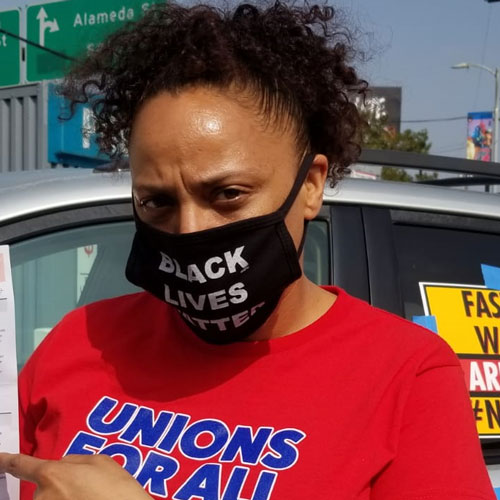
Mysheka Ronquillo
Fast-food corporations only care about the profits they can squeeze from low-wage workers like me. We’re tired! We deserve to be respected and cared for by our employers. We need radical changes to thes status quo to achieve this, we need AB 257!
Working in Fast Food

Lizzet Aguilar
Like other essential workers, my co-workers and I have risked our safety to serve our customers and the community. But, McDonald’s has done little to protect us. We need sweeping change across the industry.

Maria Ruiz
Each time we clock in, we risk the possibility of not getting paid what we’re due, harassment from customers, abuse from managers and even retaliation when we speak up. We know what goes on behind our counters and drive thru windows, and we need to be at the table providing the solutions to the issues we face.

Bartolome Perez
We won a $15/hr wage here in California, but our fight isn’t over. Since day one of our movement, we’ve also demanded a voice on the job and accountability for corporations like McDonald’s that put profit over worker safety

Ronnesha Pennywell
We need support, but corporations alone have proven that their only concern is profit. That is why we pass AB 257 and ensure our voices are taken into account.

Noemi Flores
Having worked for at least a decade in McDonald’s I can say that there is a culture against workers exercising their rights at my store. With AB 257, workers could set new standards across the fast food industry to better protect us against this un-American hate.

